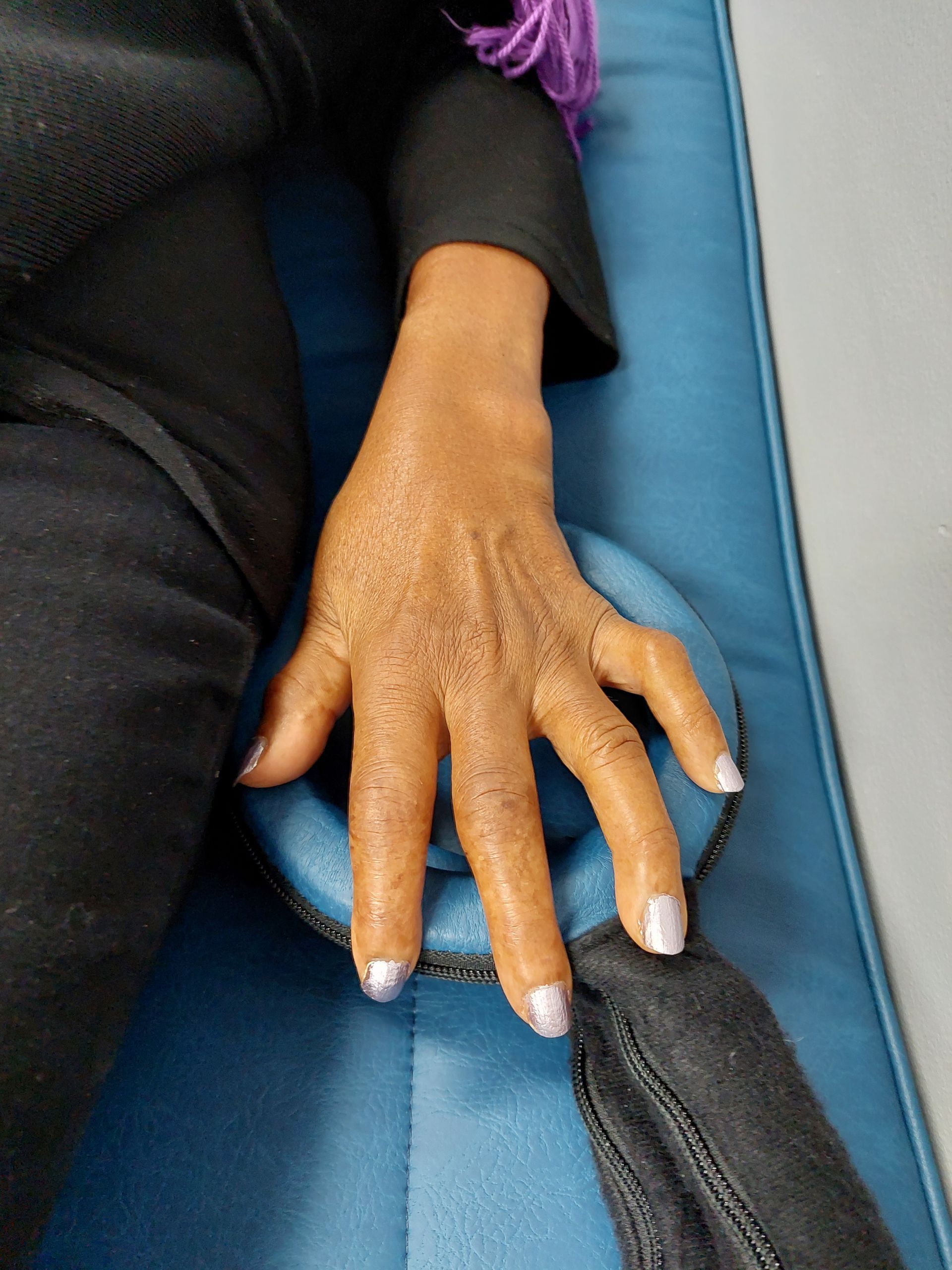Psoriasis and Parasites
What is Psoriasis?
Psoriasis is a chronic autoimmune disease that affects the skin, nails, and joints. The disease is characterized by red, scaly, and itchy patches on the skin that can be painful and disfiguring. The exact cause of psoriasis is not fully understood, but research has suggested that parasites may play a role in the development and progression of the disease.
What are Parasites?
Parasites are organisms that live in or on another organism and derive nutrients from it. There are different types of parasites, including helminths, protozoa, and ectoparasites. Parasites can disrupt the immune system and cause inflammation, which may contribute to the development of psoriasis. For example, some parasites produce antigens that trigger an immune response, leading to chronic inflammation.
Parasites as Causes of Psoriasis
Several studies have shown a link between parasitic infections and psoriasis. One study found that patients with psoriasis had a higher prevalence of parasitic infections than healthy controls. Another study found that treating parasitic infections in patients with psoriasis improved their skin symptoms. These findings suggest that parasitic infections may play a role in the development and progression of psoriasis.
Helminths are parasitic worms that can live in the human body for years. There are different types of helminths, including hookworms, whipworms, and roundworms. Helminths have been shown to have immunomodulatory effects that may help reduce inflammation in psoriasis. For example, a study conducted in Brazil found that patients with psoriasis who were infected with hookworms had lower levels of inflammatory cytokines and reduced disease severity compared to uninfected patients. Similarly, a study conducted in Thailand found that patients with psoriasis who were treated with the helminth Trichuris suis had improved skin symptoms and reduced levels of inflammatory cytokines.
Protozoa are single-celled organisms that can cause parasitic infections in humans. One protozoan parasite that has been linked to psoriasis is Blastocystis hominis. Blastocystis hominis is a common intestinal parasite that can cause diarrhea, abdominal pain, and other gastrointestinal symptoms. A study conducted in Mexico found that patients with psoriasis had a higher prevalence of Blastocystis hominis infection compared to healthy controls. Another study conducted in Iran found that patients with psoriasis who were infected with Blastocystis hominis had more severe skin symptoms and higher levels of inflammatory cytokines compared to uninfected patients.
Ectoparasites are parasites that live on the surface of the skin or hair of the host. One ectoparasite that has been linked to psoriasis is Demodex mites. Demodex mites are microscopic parasites that live in the hair follicles of humans and other mammals. They are usually harmless, but in some cases, they can cause skin irritation and inflammation. A study conducted in Japan found that patients with psoriasis had a higher density of Demodex mites on their skin compared to healthy controls. Another study conducted in Thailand found that patients with psoriasis who were treated with an anti-Demodex agent had improved skin symptoms and reduced levels of inflammatory cytokines.
Overall, while more research is needed to fully understand the link between parasites and psoriasis, these findings suggest that parasitic infections may play a role in the development and progression of this chronic skin disorder. Treatment of parasitic infections may therefore be an important consideration in the management of psoriasis. However, it is important to note that parasitic infections are not the sole cause of psoriasis, and other factors, such as genetics and environmental triggers, may also contribute to the disease. Therefore, a holistic approach to treatment, which includes addressing all potential factors, is necessary for the effective management of psoriasis.
How NRT Can Help Reduce Psoriasis and Parasites
NRT is a non-invasive and natural approach to identifying and correcting underlying imbalances in the body. It involves testing the body's reflexes and responses to various stimuli to identify any weaknesses or imbalances that may be contributing to a person's symptoms.
By addressing the root cause of the condition, NRT can help reduce psoriasis and parasite symptoms, improve overall health, and promote well-being. NRT focuses on correcting nutritional deficiencies, eliminating food sensitivities, and supporting the body's natural detoxification processes.
Research has shown that nutritional interventions can help reduce parasite infections. One study found that supplementing with zinc can help reduce the duration and severity of Giardia infections, a common parasite that causes diarrhea and abdominal pain. Another study found that garlic extract can help reduce the number of parasites in the stool of infected individuals.
Book an Appointment Today with Dr. Gayle Peltz
If you are struggling with psoriasis, parasites, or other health concerns, consider scheduling an appointment with Dr. Gayle Peltz at Blue Q Health and Wellness. Our team is dedicated to providing personalized care and support to help you achieve optimal health and well-being. Contact us at 727-530-7778.
References:
- Silva-Junior, F. P., Souza, A. W., Cunha, A. S., Pedrosa, L. F., Costa-Cruz, J. M., & Correa-Oliveira, R. 2011). Infection by intestinal parasites, stunting and anemia in school-aged children from southern Angola. PloS One, 6(9), e24001. doi: 10.1371/journal.pone.0024001.
- Campos, M. R., Oliveira, M. C., Oliveira, I. R., & Santos, J. N. (2012). Prevalence of intestinal parasites in patients with psoriasis. Journal of the European Academy of Dermatology and Venereology, 26(6), 773-777. doi: 10.1111/j.1468-3083.2011.04217.x.
- Salimi, M., Rakhshanpour, A., Rafiei, R., & Shafiei, A. (2015). Blastocystis hominis and psoriasis: a case-control study. International Journal of Dermatology, 54(6), 632-637. doi: 10.1111/ijd.12858.
- Kumari, R., Gupta, R., Samantaray, J. C., & Sharma, V. (2015). Study of demodex folliculorum in patients with psoriasis. Indian Journal of Dermatology, 60(4), 419. doi: 10.4103/0019-5154.160478.
- Guo, Y., Wang, L., Lv, C., Cui, H., Liu, Y., & Li, Y. (2019). The helminth Trichuris suis suppresses experimental dextran sulfate sodium-induced colitis in mice. Parasitology Research, 118(10), 3009-3019. doi: 10.1007/s00436-019-06459-6.
- Carvalho, B. O., & Rizzo, J. A. (2020). Psoriasis and helminths: a possible association. Anais Brasileiros de Dermatologia, 95(5), 618-624. doi: 10.1016/j.abd.2020.03.004.










Contact
Address:
2480 E Bay Dr STE 13
Largo, FL 33771
Email: blueqhealth@gmail.com
Phone: 727-530-7778
Fax: 727-530-7797
All Rights Reserved | BlueQ Health and Wellness
